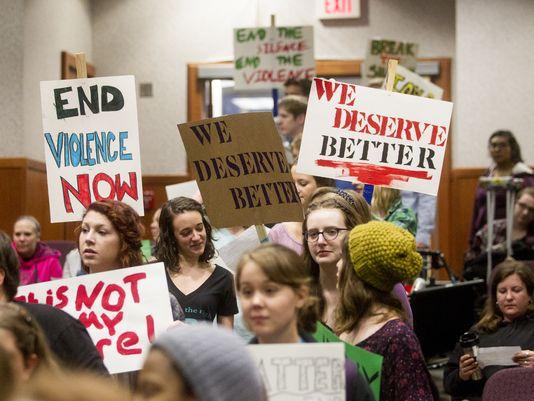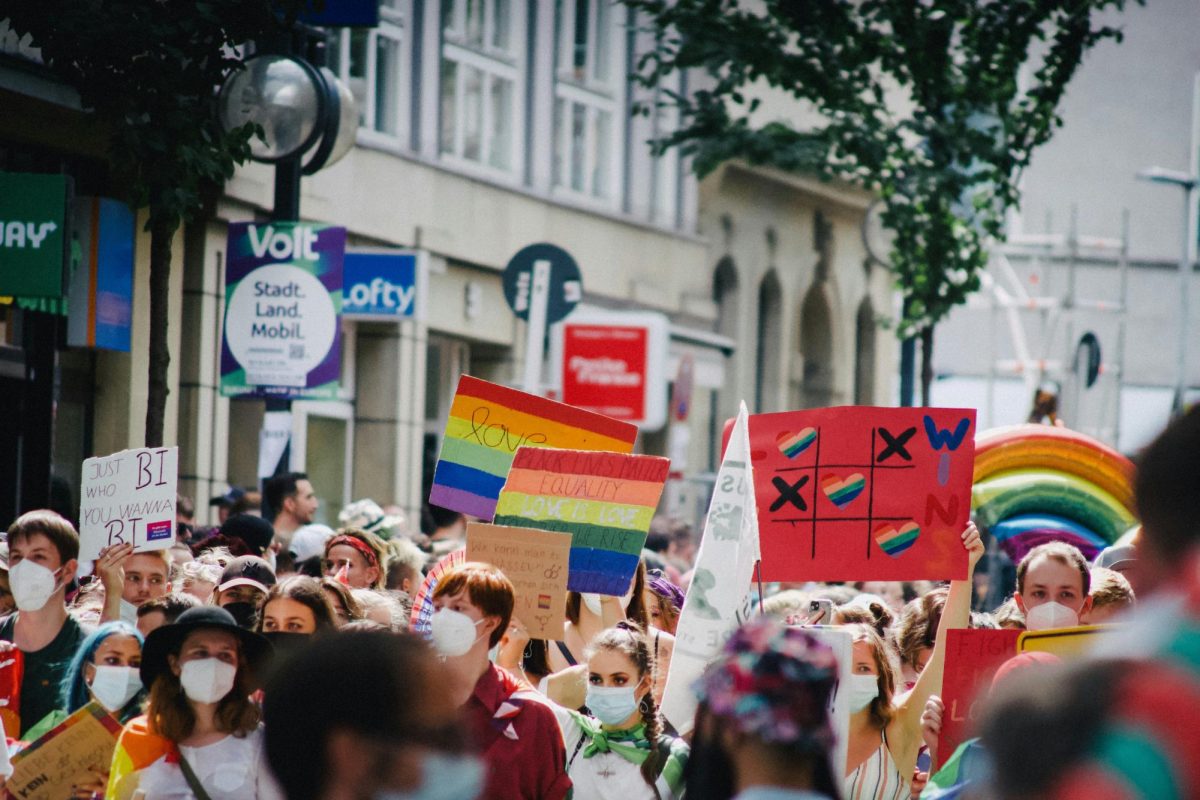It only takes minutes of scrolling through Twitter, watching the news, or listening to the radio to realize the prevalence of sexual assault. This problem is particularly rampant on college campuses. Columbia University student Emma Sulkowicz made headlines last year when she carried her mattress around campus to protest the university’s refusal to expel her assaulter. Attempting to remedy rape culture, California and New York have implemented affirmative consent laws — laws that specify only “yes” qualifies as consent, rather than that a lack of “no.”
These laws are a step in the right direction, demonstrating that clearly the current atmosphere of sexual violence both on and off campuses is unacceptable. However, laws alone are not enough. I’m not normally one to quote Macklemore, but his lyrics, “no law’s gonna change us, we have to change us,” hold true in light of recent events.
A cultural change has to take place or these laws are meaningless. As long as there are websites and forums dedicated to how to get around these new laws, spaces where would-be predators can share tips on how to exploit the gray areas of these laws, rape culture is still alive and well.
Evidence of the far-reaching effects of rape culture is unavoidable when researching the topic of affirmative consent. Lewis’s Law, based on an observation of journalist Helen Lewis, states that the comments on any article about feminism justify feminism. When I began researching affirmative consent laws, I read an article on teaching students about consent on college campuses. The first comment was linked to an article titled “”How to use affirmative consent to destroy campus feminists in California.”
Affirmative consent laws assume that too much of the issue results from misunderstandings. Maybe some assaults do stem from misunderstandings or misinterpretations, but we shouldn’t pretend that this is always the case.
As long as our culture tolerates sexual assault, by pretending that it is the unavoidable result of misunderstandings, we allow this problem to continue. For every Emma Sulkowicz, how many victims do we ignore? For every victim that has the opportunity to tell their story from the cover of “New York Magazine,” how many stories do we overlook? According to RAINN (Rape, Abuse, and Incest National Network), 68% of sexual assaults are never reported to the police. Exact numbers are difficult to obtain because of underreporting, but clearly not enough victims feel that they will get justice or help by sharing their stories.
It’s time for a cultural shift, one in which tolerating this kind of behavior becomes unimaginable. How do we make this happen? Believing victims when they speak out is crucial. When a victim publicly accuses a rapist, the victim likely faces blame, harassment and public airing of their personal and sexual history. Considering this ordeal and the small numbers of accusations that actually end in jail time for the perpetrator, there is little incentive to make a false claim.
Every time we overlook the claims of a victim it sends a clear signal to someone else thinking about coming forward: we are not willing to listen. Speaking out takes courage — real life is not like Law and Order: Special Victims Unit. There is not always an Olivia Benson there to fight for you.
In addition, the idea of still associating with a known rapist or perpetrator of sexual violence because “they’ve always been nice to me” sends the same message. This does not necessarily have to be in person either. The same message that this is acceptable behavior comes across just as clearly every time we watch a Woody Allen movie or listen to R. Kelly.
If we can make exceptions for these perpetrators of sexual violence, our stance shifts from “we stand with victims” to “we stand with victims…when it’s convenient for us.” If we can’t find entertainment that was not made at the hands of a rapist and abuser, we’re part of the problem.
Affirmative consent laws like those implemented in New York and California are significant – they demonstrate an awareness of this problem and a desire to find a solution. Yet they fail to address the root of the issue. As long as our culture condones sexual violence, any number of laws will ultimately be unsuccessful. To make our communities less prone to sexual violence, the most important step we can take is to make it clear that we support and believe victims, and make affirmative consent the bare minimum standard. Every time we forgo excuses like “boys will be boys” “they made one mistake” and hold rapists accountable for their actions, it sends the message to would-be assaulters that their behavior will not be tolerated
Photo courtesy of Iowa City Press-Citizen





Chavez | Sep 21, 2015 at 9:32 am
Quibbles:
“DISMANTLING RAPE CULTURE”
Have we established that there is a “rape culture”?
“As long as our culture tolerates sexual assault,”
Have we established that our culture tolerates sexual assault?
“For every Emma Sulkowicz, how many victims do we ignore?”
Have we established that Emma Sulkowicz was actually a victim?